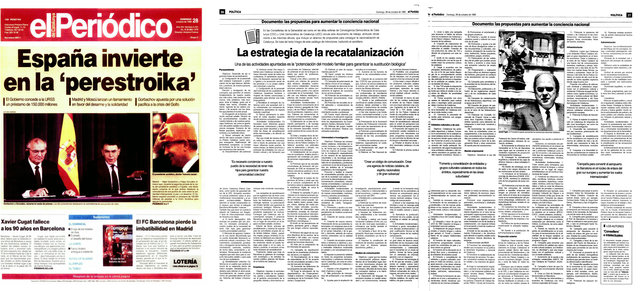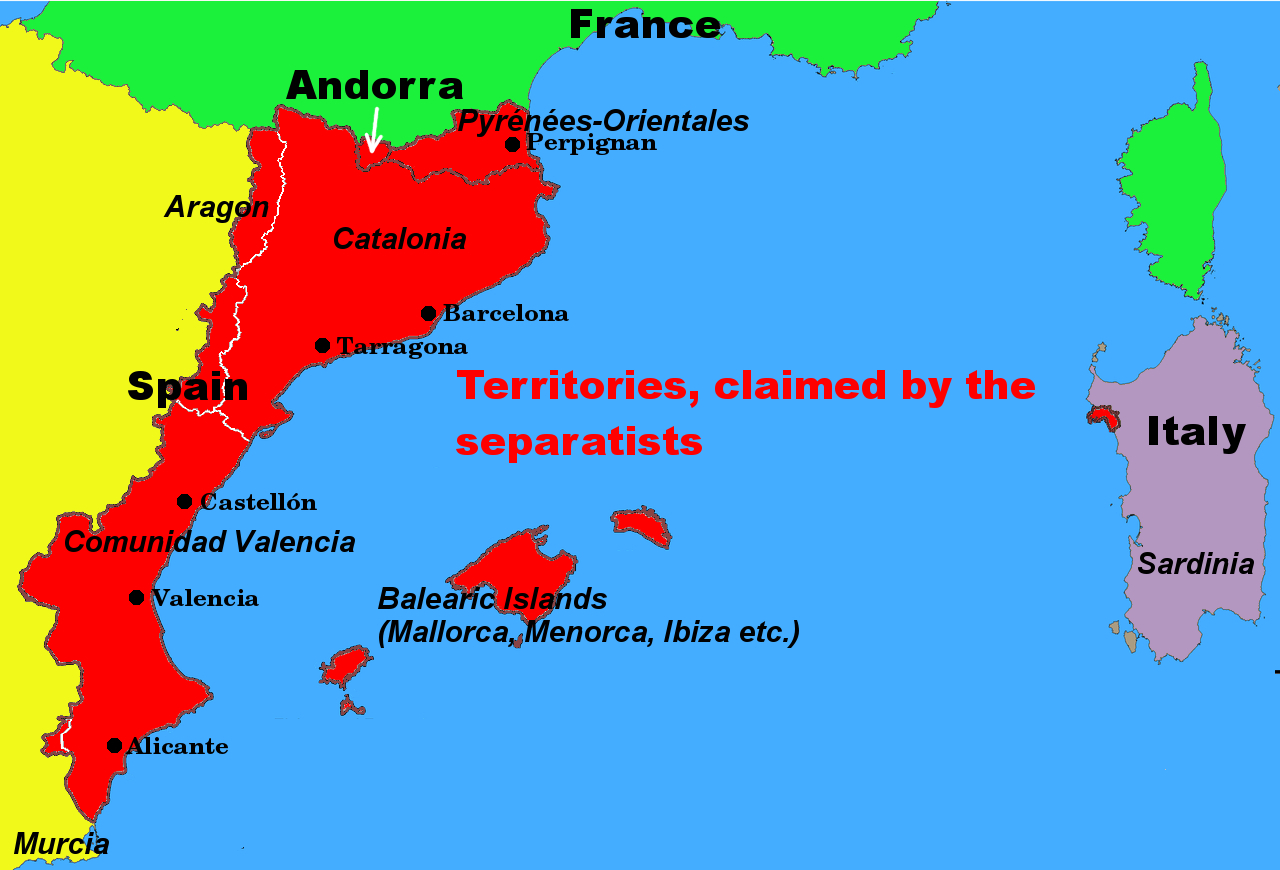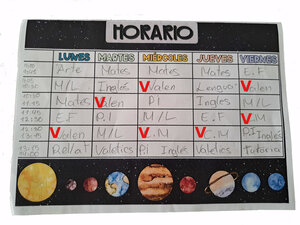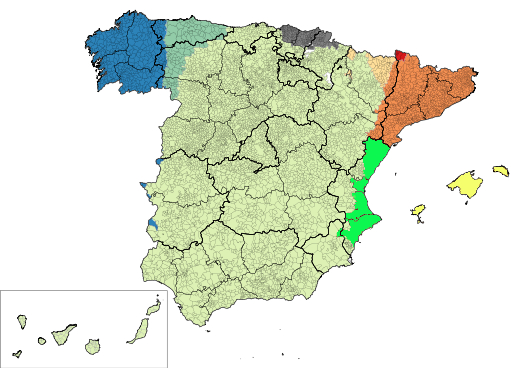Is this democracy?
25% Valenciano - Parents not asked!
September 17, 2024
An example timetable for a 6th grade in a public school in Valencia. 30 lessons1, 7 of which are decreed for Valenciano. 4 hours for the language itself (Valen) and 3 for Ciencias Naturales (C/N = natural sciences), which is taught in Valenciano. Spanish is taught 3 hours a week2 and is used for all other subjects.
The parents were not asked whether they wanted their kids to be taught in Valenciano.
This is the second week after the summer vacation. Most pupils still have reduced lessons in September. The timetable shown here is for October.
The decisions for timetables were made on the basis of the last government decisions of the now conservative government in Valencia and has eliminated the greatest injustices of the previous left/green government. What has remained is the undemocratic principle that politicians decide on the language of instruction and not the parents.
The result is that many parents remain dissatisfied. Those who have grown up with Valencian language and culture may wish that the majority of subjects were taught in Valenciano and not in Spanish. It is understandable that parents want their children to carry on their own culture.
For the vast majority of Valencians, whose mother tongue is Spanish, it remains completely open whether they want their children to be prevented from learning subjects such as the language of their big neighbour, France3, by being taught in Valenciano.
It is particularly striking that natural sciences are taught in Valenciano. Most scientific publications today appear in English, how many appear in Valenciano?
Of course, the child may later want to work in the Valenciano civil service, for which Valenciano would be a great advantage. But anyone who speaks at least two Romance languages knows how easy it is to learn a third Romance language, such as Valenciano.
Humor isn't the solution - but it relieves tensions
The difficulty parents have in finding the best solution for their child is aptly outlined in a sketch by Bavarian humorist Gerhard Polt. After an argument with his wife about their offspring's future profession, he says something like: „Well, if we can't agree on the kid's future, then I am afraid, the child will do what he wants himself!“
Footnotes
1 Arte = Art - M/L = Music/Spanish in weekly rotation - Mates = Mathematics - E.F. Physical Education - Rel/at = Religion/Alternative - Inglés = English - P.I. = Projects - Valetics = Values/Ethics - Lengua = Spanish
2 Spanish as a language is taught once a week (Thursday 2nd lesson - Lengua) and four times a week alternating with music (M/L), i.e. on average twice a week.
3 French is one of the official languages of the United Nations, the European Union, the African Union and many international organizations such as UNESCO, the International Court of Justice and the Red Cross. It plays a central role in international diplomacy and is used in many official negotiations and documents
| | | | Click here to subscribe or cancel your subscription |
Myths and deceptions of Catalan nationalism

Here you'll find the translation
Languages in Spain
Spanish, Basque, Catalan, Mallorquin, Valenciano etc.
The strategy of recatalanization
 1980 the Spanish journal "El Periodico" published a secret document about the strategy of the Catalan government. It shows in a frightening way the actual spiritual world of the separatist leaders.
1980 the Spanish journal "El Periodico" published a secret document about the strategy of the Catalan government. It shows in a frightening way the actual spiritual world of the separatist leaders.Now it is available in english translation.
Pancatalanism
the separatist's imperial claim
 The Catalan government exports the conflict into communities with Catalan population, supporting all efforts of the separatists including financial means to destroy Spain.
The Catalan government exports the conflict into communities with Catalan population, supporting all efforts of the separatists including financial means to destroy Spain. An important tool is the establishment of a language dictatorship that is not afraid to use the same means as Franco.
Separatist indoctrination

Click here to read the study
Language imposition and democracy

An essay in 6 parts on the potentially violent effect of language imposition containing contributions from South Africa, Catalonia, Ukraine and France.
go to part 1 SticSti
Publications
 The title says: "Catalonia, a conflict is exported. Insights of a migrant"
The title says: "Catalonia, a conflict is exported. Insights of a migrant"Sorry, up to now, this book is only available in German. However, drop us a line, if you are interested to learn more Contact.

